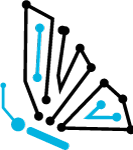Muhammad Inam Ul Haq

Engineering Student
Federal Urdu University of Arts, Sciences and Technology
Advice to Students
“I would suggest you get some knowledge about the technologies specific to your interests. They will encourage you and help you chose the right field. Read science magazines, they will keep you updated on what’s happening in your field…”
Education
3rd Year Student Pursing a Bachelor of Electrical Engineering with Specialization in Electronics at the Federal Urdu University of Arts, Sciences and Technology, Islamabad, Pakistan
Interview Segment
Q: When did you know you wanted to become an Engineer?
Inam Ul Haq: I had a lot of interest in automotive when I was in secondary school. At first, I wanted to be a pilot. While in higher secondary school, I found myself more interested in the control systems and electronics used in automotives. That was when I decided to pursue engineering.
Q: What is your university experience like in terms of the amount of time you find you need to study each day?
Inam Ul Haq: I think it is good. University life allows you many opportunities to get involved with all sorts of activities, like co-curricular or extra-curricular activities. All it requires is time management. I study an hour or two each day to review my coursework. In my free time, I play E-games, and do Internet research on new topics. I’m also an official of an engineering society in my university. It’s not that hard to manage these activities while being in university at all.
Q: Are you incorporating any work experiences while you are a student?
Inam Ul Haq: Yes. I had a six week internship in KOHINOOR TEXTILE MILLS internal power plant. It’s a 27MW internal power generation system. I learned a lot. I saw many practical applications of what I have studied including mechanical structure, power generation, control, instrumentation, troubleshooting etc.
Q: How did you prepare for your university experience?
Inam Ul Haq: Not much. The university experience is very interesting so all you have to do for its preparation is to develop interest in your specific field. It’s more like an advanced higher secondary school with enhanced subjects, methodology and environment.
Q: Did/do you have a mentor that has helped guide you thus far?
Inam Ul Haq: Yes. My father is a welding and metallurgy engineer.
Q: Is there a specialty area you have focused on in engineering? If so, what is it, and how did you decide on this specialty? Also, at what point in your university experience did you decide?
Inam Ul Haq: Yes. My area is hardware programming and software simulations. I find it to be the most interesting part of engineering so far. It basically involves the control of hardware through software. Some examples include the Intel Microprocessor in your PC, or the cell phone in your hand. They all include a hardware chip, called a microcomputer, which performs a specific task as specified by its software. This area requires proficient logic and algorithm design skills. After taking two courses in this area, I find that my programming and software skills are much better. My grades and my teachers helped me decide to focus on this area. I chose this area while in the second year of my studies.
Q: Is it hard to balance your engineering studies with other university activities?
Inam Ul Haq: No, not at all. Though it could be a little challenging if you’re a poor time manager. Time management is everything – both in your studies as well as your professional career. Being a typical student, I play E-games and indoor soccer almost daily. I watch movies, and I listen to a lot of music. I also hang out with my friends, but my first priority is my studies. When I feel like I’ve completed the tasks I’m assigned, I can switch to other activities.
Q: Do you find yourself studying more in a team situation or alone? Do you have a preference?
Inam Ul Haq: It depends. Some people find working in teams comfortable, while others panic. I have a slightly different perspective. When working in a team, it helps you think in a broader way. You get to know how other people approach a specific problem or situation. You develop reasoning and critical thinking skills. I prefer group work for discussions, but I used to do my programming alone, because it requires concentration. So, it really depends on you.
Q: What’s the hardest thing you have found about your university experience working toward a degree in engineering?
Inam Ul Haq: I guess time management and prioritizing your tasks. If you do can’t find balance, it will be difficult to manage everything. If you are unable to complete your coursework and tasks, your grades will be affected. If you don’t engage in extra-curricular and co-curricular activities, you may be less well-rounded. If you don’t do research work apart from your courses, you will not be up to date on the latest innovations. So, in short, all of this requires proper time management. If you are successful in your time management, you will get the most out of every activity.
Q: What’s the most rewarding aspect about working toward a degree in engineering?
Inam Ul Haq: The most rewarding aspect is the feeling you have when you get to know how engineering applies to the world around you. When I get to know the practical aspects of hardware or technology in my coursework, it helps to increase my interest in the field..
Q: Do you think you’ll continue studying engineering, or do you think you’ll switch to another area? Why?
Inam Ul Haq: Yes. I will continue studying engineering. I will study the applications of my field in other areas like the military, biotechnology etc. but my major will remain same. Electrical engineering has applications in so many different areas.
Q: Do you have any idea what sort of industry or work you’d like to do when you graduate? If so, how did you find out about this industry or field?
Inam Ul Haq: Yes. I will probably be working in an industry where the focus is hardware programming, such as the automotive or power industry. I could see myself working at an electronics company like Sony or Samsung. I am committed to pursuing this field. I made up my mind during my studies while learning about the many different practical applications of engineering. For example, microcomputers are used everywhere – in game controllers, keyboards, computer mice, calculators etc.
Q: Do you think you’ll want to pursue additional degrees after you complete the one you are working on? Why or why not?
Inam Ul Haq: Yes. I will complete my Master’s degree. A Bachelor’s degree gives you an introduction to all areas of engineering. A Master’s degree allows you to focus on a specific area. I hope to complete my Master’s degree in computer architecture and programming.
Q: Did you think that school will prepare you for the way the work gets done in the real world?
Inam Ul Haq: School “can”, not “will”. It depends on your approach and how you pursue your courses.
Q: How many engineering schools did you apply to? How many accepted you?
Inam Ul Haq: I applied to three and was accepted to two.
Q: Did you have a “first choice?” Were you accepted into your “first choice?”
Inam Ul Haq: Yes. I was accepted to my first choice.
Q: How did you decide which university to go to?
Inam Ul Haq: There are university rankings provided by the educational commission. Also, you can get information about universities and their standards via friends, the Internet, and through research. That’s how I decided on my school.
Q: What should high school students be doing to prepare themselves to take on the work that engineering students do?
Inam Ul Haq: You should concentrate on the sciences; specifically physics and mathematics. Engineering requires both. Having a strong foundation in physics will help you a lot. Mathematics will also help you to build strong reasoning and critical thinking skills. Concentrate on graphs. They appear everywhere in engineering studies and in the field. If you are comfortable graphing, it will help you a great deal.
Q: What other advice do you have for high school students?
Inam Ul Haq: I would suggest you get some knowledge about the technologies specific to your interests. They will encourage you and help you chose the right field. Read science magazines, they will keep you updated on what’s happening in your field. That was the way I chose electrical engineering. Concentrate on your science subjects. A strong foundation in the basics will help you a lot. Concentrate on your mathematics. That will help you understand logic more easily. Engineering gives you the opportunity to create something new for the world. Imagine what it would be like to develop a new technology and how rewarding that would be — the feeling that you have provided the world with something fruitful and new. So, if you keep focused on the possibilities, it will help you stay motivated. Always be confident. And of course remember the importance of “TIME & TASK MANAGEMENT”.























